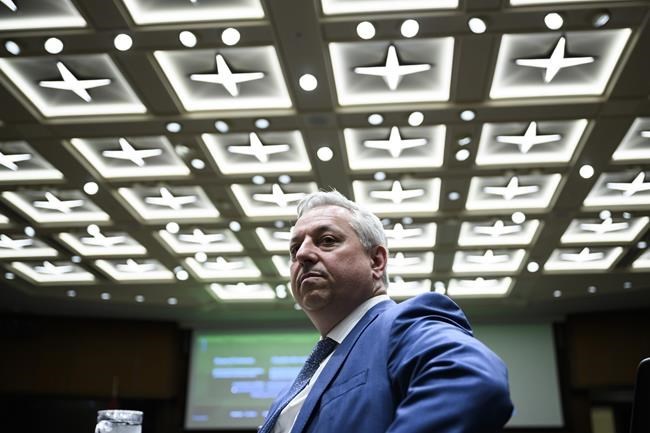OTTAWA — The head of Canada's spy service says the way to shield advanced technology from adversaries like China and Russia is to educate researchers and scientists about the risks, not tell them what they should or should not do.
Canadian Security Intelligence Service director David Vigneault told an international conference Tuesday that representatives of Canada's largest research universities were reluctant to openly discuss security issues when he met with them five or six years ago.
Vigneault said the relationship has evolved to the point where research institutions are now asking CSIS how they can work together.
Vigneault is participating in a summit in Palo Alto, Calif., on advancing economic security and public safety with counterparts from the United States, the United Kingdom, Australia and New Zealand.
Representatives of the Five Eyes intelligence-sharing alliance gathered at the invitation of U.S. Federal Bureau of Investigation director Christopher Wray, along with entrepreneurs, government officials and academics.
CSIS says threats to innovation in areas such as artificial intelligence and quantum computing include intellectual property theft, coercion and the use of collaborative and open research efforts for nefarious purposes.
During a panel discussion with the other intelligence leaders on Tuesday, Vigneault said CSIS is warning institutions that certain Chinese partnerships with western researchers on cutting-edge technology are aimed at gleaning know-how useful to Beijing's military.
He noted Canada has issued research security guidelines aimed at protecting institutions and intellectual property.
"We will not want to tell people what they should do or should not do, but we want to give them as much clarity as possible," Vigneault said.
All nations spy, seek secrets and try to gain strategic advantage, but China's behaviour goes well beyond traditional espionage, said Mike Burgess of the Australian Security Intelligence Organisation.
"The Chinese, to their credit, are very clear about where they want to innovate and what they need in their own national sovereign interest, which is fine and entirely appropriate," Burgess said.
"The problem with that is they're engaged in wholesale intellectual property theft and the acquisition of expertise, through means which (are) exploiting our open and collaborative DNA."
The Five Eyes partners collectively issued guiding principles Tuesday for researchers, urging them to be aware of the threats and to take steps to secure their business environments, products, partnerships and expansion plans.
Ken McCallum, director general of Britain's MI5, said it "would be crazy for any of us to try to close down the fundamental openness" of universities.
"But you probably don't want a PhD student in advanced robotics to be sponsored by the (Chinese) People's Liberation Army in your university," McCallum said.
"So this is not about changing the dial on the overall default towards open collaboration, joint research, that sort of expeditionary attitude that academia must rightly prize, but it is about having your eyes open to the most egregious forms of risks."
Vigneault recalled "a very difficult discussion with a business leader in Canada" in which CSIS shared intelligence about guidance system components being used in Russian drones to kill Ukrainians.
"A tangible example like that goes a long way," he said.
Following their panel discussion, the intelligence leaders were slated to sit down with business figures to talk about expanding and strengthening private-public partnerships to better protect innovation and the security of the five countries and their citizens.
This report by The Canadian Press was first published Oct. 17, 2023.
Jim Bronskill, The Canadian Press



